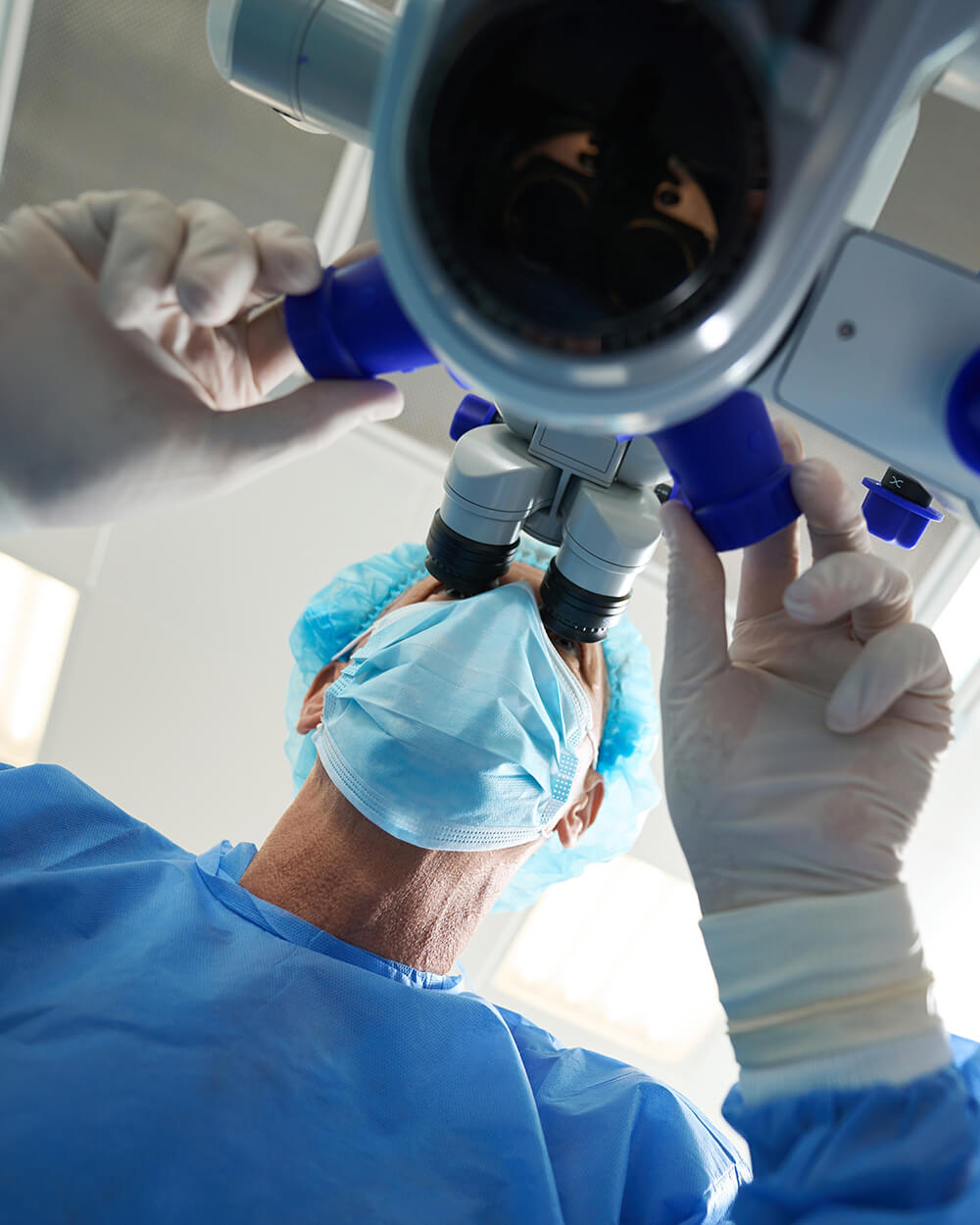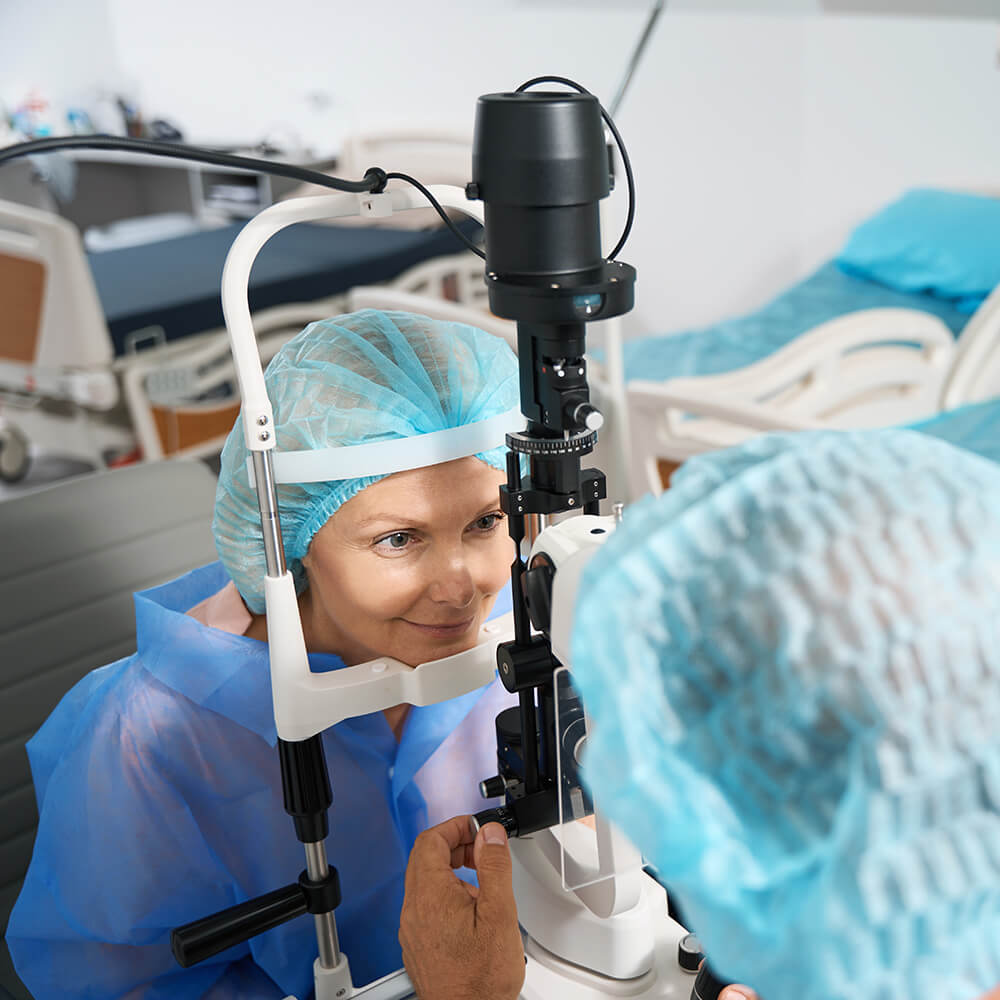Cataract surgery is one of the most common and successful procedures performed in the United
States. During cataract surgery, your surgeon removes the clouded natural lens of your eye and replaces it
with a clear artificial lens called an intraocular lens (IOL).
Cataracts occur when the natural lens of your eye becomes cloudy, preventing light from
passing through clearly. Many patients compare it to looking through wax paper or a dirty windshield, where
details become fuzzy and hard to make out.
The only effective treatment for cataracts is surgical removal of the clouded lens. While
cataracts most commonly affect people over 40, they can develop at any age due to factors like heredity, eye
injury, disease, or smoking.
At Florida Eye Microsurgical Institute, we utilize advanced technology, including the LenSar
Ally laser system, which provides precise, computer-guided treatment for enhanced surgical outcomes. This
state-of-the-art approach allows for greater accuracy and can contribute to faster healing times.


Recognizing cataract symptoms early can help you maintain your quality of life and safety. Common signs that you may have cataracts include:

One of the most important decisions you'll make during cataract surgery is choosing the right intraocular lens (IOL) for your lifestyle and vision needs. Your surgeon will discuss which lens options best fit your individual requirements and daily activities.
Your surgeon will conduct a thorough evaluation of your eyes and discuss your lifestyle needs to recommend the IOL that will provide you with the best possible visual outcome.
 Request an Appointment
Request an Appointment
Cataract surgery is performed as an outpatient procedure, meaning you'll go home the same day. The procedure itself is typically painless and takes approximately 20 minutes per eye.
Before surgery begins, you'll receive numbing eye drops to ensure your comfort throughout the procedure. Your surgeon will make a small, precise incision in your eye, often so small that stitches aren't required. Using advanced techniques and the LenSar Ally laser system when appropriate, your surgeon will carefully break up and remove the clouded natural lens.
Once the cataract is removed, your new IOL is inserted through the same small incision. The IOL unfolds and positions itself in the same location where your natural lens used to be.
Because the incision is so small, it typically heals naturally without stitches. Most patients are surprised by how comfortable the procedure is and how quickly it's completed. You'll rest briefly in our recovery area before being discharged with post-operative instructions and eye drops to aid in healing.

Recovery from cataract surgery is typically smooth and relatively quick. Most patients notice improved vision within 24 hours, with continued improvement over the following days and weeks.
Immediately after surgery, your eye may feel slightly scratchy or irritated, similar to having an eyelash in your eye. This sensation usually subsides within a day or two.
You'll wear a protective eye shield while sleeping for the first week to prevent accidental rubbing or pressure on your eye. You'll also be prescribed anti-inflammatory and antibiotic eye drops to prevent infection and reduce inflammation.
It's important to use these drops exactly as directed by your surgeon. Most patients can resume normal daily activities like reading, watching television, and light household tasks within a day or two.
Avoid heavy lifting, bending over, or strenuous exercise for the first week after surgery. Swimming and hot tubs should be avoided for at least two weeks to prevent infection. Your surgeon will provide specific guidelines based on your individual healing progress.
Follow-up appointments are scheduled to monitor your healing and ensure optimal results. Most patients achieve their final vision results within 4-6 weeks after surgery.
 Request an Appointment
Request an Appointment
Sometimes, weeks, months, or even years after successful cataract surgery, your vision may become cloudy again. This isn't because your cataract has returned, as a cataract cannot regrow.
Instead, you may have developed what's called a secondary cataract or posterior capsule opacification. During cataract surgery, the back portion (posterior capsule) of your natural lens is left in place to support your new IOL.
The good news is that secondary cataracts are easily treated with a quick, painless laser procedure called YAG laser treatment or posterior capsulotomy. This five-minute outpatient procedure uses a precise laser to create a small opening in the cloudy capsule, immediately restoring clear vision.
The YAG laser treatment requires no incisions or stitches. You'll receive numbing eye drops for comfort, and most patients notice improved vision within hours of the treatment. Anti-inflammatory eye drops are typically prescribed for three days following the procedure.
Don't let cataracts limit your ability to enjoy life's precious moments. At Florida Eye Microsurgical Institute, our experienced surgeons combine advanced technology with compassionate care to restore your clear vision.
Our state-of-the-art outpatient surgery center performs thousands of cataract procedures each year, and our team is dedicated to providing you with impeccable care throughout your journey to better vision.